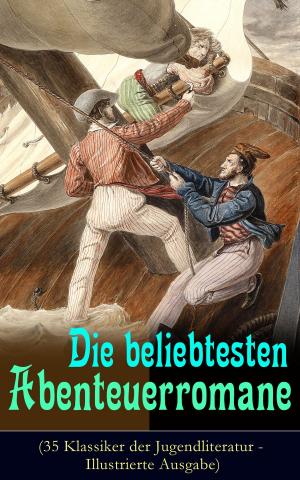The Reforming Treatises of Martin Luther
The Most Influential Revolutionary Works: Address to the Christian Nobility of the German Nation, Prelude on the Babylonian Captivity of the Church & A Treatise on Christian Liberty
Nonfiction, Religion & Spirituality, Christianity, Denominations, Lutheran, Theology| Author: | Martin Luther | ISBN: | 9788026888420 |
| Publisher: | e-artnow | Publication: | April 2, 2018 |
| Imprint: | Language: | English |
| Author: | Martin Luther |
| ISBN: | 9788026888420 |
| Publisher: | e-artnow |
| Publication: | April 2, 2018 |
| Imprint: | |
| Language: | English |
"Address to the Christian Nobility of the German Nation" is the first of the three tracts written by Martin Luther in 1520. In this work, he defined for the first time the signature doctrines of the priesthood of all believers and the two kingdoms. After the church made a strong attempt at drawing distinct lines on saying who had authority in the spiritual sphere and its matters. This division of Christians into spheres motivated Luther to write on the "three walls" the "Romanists" created to protect themselves from reform. "Prelude on the Babylonian Captivity of the Church" is a theological treatise, the second of the three major tracts from 1520. In this work Luther examines the seven sacraments of the Catholic Church in the light of his interpretation of the Bible. With regard to the Eucharist, he advocates restoring the cup to the laity, dismisses the Catholic doctrine of Transubstantiation but affirms the real presence of the body and blood of Christ in the Eucharist, and rejects the teaching that the Mass is a sacrifice offered to God. "A Treatise on Christian Liberty" is the third of Luther's major reforming treatises of 1520. It developed the concept that as fully forgiven children of God, Christians are no longer compelled to keep God's law; however, they freely and willingly serve God and their neighbors. Luther also further develops the concept of justification by faith. In the treatise, Luther stated, "A Christian is a perfectly free lord of all, subject to none. A Christian is a perfectly dutiful servant of all, subject to all."
"Address to the Christian Nobility of the German Nation" is the first of the three tracts written by Martin Luther in 1520. In this work, he defined for the first time the signature doctrines of the priesthood of all believers and the two kingdoms. After the church made a strong attempt at drawing distinct lines on saying who had authority in the spiritual sphere and its matters. This division of Christians into spheres motivated Luther to write on the "three walls" the "Romanists" created to protect themselves from reform. "Prelude on the Babylonian Captivity of the Church" is a theological treatise, the second of the three major tracts from 1520. In this work Luther examines the seven sacraments of the Catholic Church in the light of his interpretation of the Bible. With regard to the Eucharist, he advocates restoring the cup to the laity, dismisses the Catholic doctrine of Transubstantiation but affirms the real presence of the body and blood of Christ in the Eucharist, and rejects the teaching that the Mass is a sacrifice offered to God. "A Treatise on Christian Liberty" is the third of Luther's major reforming treatises of 1520. It developed the concept that as fully forgiven children of God, Christians are no longer compelled to keep God's law; however, they freely and willingly serve God and their neighbors. Luther also further develops the concept of justification by faith. In the treatise, Luther stated, "A Christian is a perfectly free lord of all, subject to none. A Christian is a perfectly dutiful servant of all, subject to all."















